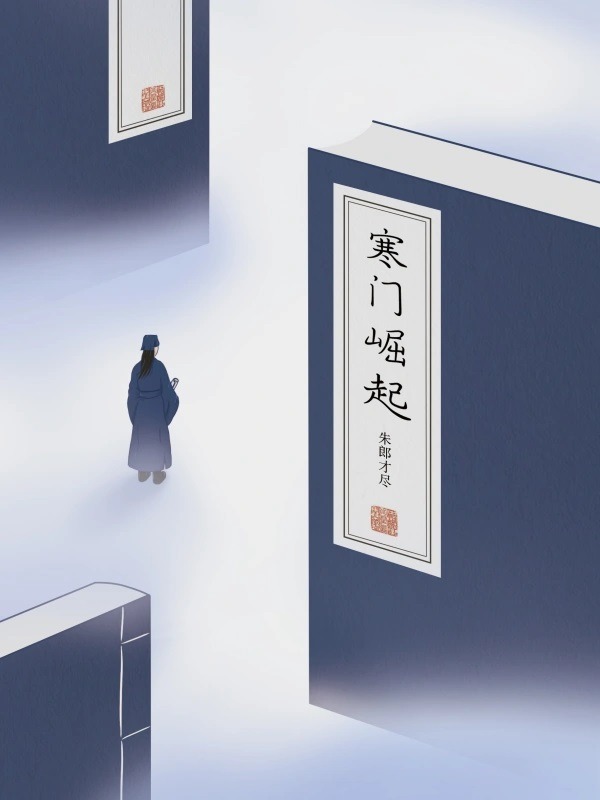
Kays Translations
Just another Isekai Lover~
Chapter 250: Longquan Ancient Temple
Zhu Ping’an drove his horse, dragging a wild boar along, and after traveling along the mountain path for more than half an hour, he finally arrived at a small town nestled by the mountains.
Riding his black horse and dragging the wild boar into the town, Zhu Ping’an caused quite a stir. A seemingly weak and clumsy young man had managed to hunt such a huge wild boar, which made for an extremely striking contrast. This immediately attracted a large crowd of onlookers, including butchers, innkeepers, and tavern workers.
The Chinese people are all experienced food lovers, and even during the Ming dynasty, butchers and tavern workers knew well the deliciousness of properly cooked wild boar meat. Wild boar, due to its large body, has a firm and dense texture, making it chewy and flavorful, with a distinct taste that is aromatic yet not greasy. Additionally, wild boar meat is known for its beauty and health benefits, including promoting weight gain, nourishing the stomach, and being effective in treating conditions such as hemorrhoidal bleeding.
Therefore, when the several butchers and tavern keepers in the town learned of the wild boar’s arrival, they rushed over and surrounded Zhu Ping’an, who had just entered the town.
“This young man, sell the wild boar to me, Old Liu. I’m an honest man, and I guarantee you won’t suffer any loss,” said a butcher, who was wearing a greasy apron. He patted the wild boar on the sled, looking up at Zhu Ping’an with a satisfied smile.
“Why not sell it to us at Zhang Ji Tavern? We’re a trusted establishment in the town,” another middle-aged man dressed as a tavern keeper said, not willing to back down.
The butcher glanced at the tavern keeper, “Brother Wang, why are you so eager? Can’t you slaughter wild boars? Once I’ve butchered this one, I’ll share some with you.”
The tavern keeper chuckled, “What? Without your Zhang the butcher, am I supposed to eat a pig with fur on it?”
“Arguing openly like this is truly embarrassing for our town. Young man, don’t listen to them. Just sell the wild boar to us at Zuihua Tavern,” a flamboyantly dressed woman stepped between the two men, throwing a flirtatious glance at Zhu Ping’an.
The crowd quickly began to argue, each wanting to buy the wild boar. The onlookers gathered around, eager to see how Zhu Ping’an would handle the situation.
“Cough, cough, I was just lucky to hunt this wild boar. As I’m new to this place, I can’t refuse such kindness. Here’s the deal: let the one who offers the highest price take it,” Zhu Ping’an said with a simple-minded smile as he dismounted his horse and gestured politely toward the crowd.
Auctioning was not a new sales method; it had existed in Chinese history for a long time. In the 25th year of Emperor Xuanzong’s reign (737 AD), an imperial edict stated that items pledged with a loan that were not redeemed after three years would be auctioned. Thus, ancient auctions had been practiced for quite some time, although they were not commonly used.
The crowd of onlookers was now in for a treat.
“I’ll offer 15 wen per jin,” the first to speak was Wang the butcher.
Zhu Ping’an remained unmoved, only smiling as he looked at Wang the butcher. Five years ago, when his father and older brother had luckily hunted a wild boar, they sold it for 15 wen per jin, and now Wang was only offering the same price.
“No, I’ll offer 18 wen per jin,” Wang the butcher quickly corrected himself, slightly embarrassed by Zhu Ping’an’s smile.
“Hahaha, Wang Butcher, no wonder Sister Hua said you embarrassed us in Luoshan Town. 18 wen, and you’re still bold enough to say it out loud?! I’ll offer 20 wen,” another butcher mocked Wang, raising his greasy hand.
The onlookers couldn’t help but join in the laughter.
“I’ll offer 25 wen,” Wang the butcher gritted his teeth.
“I’ll offer 30 wen,” the tavern keeper from Zhang Ji Tavern chimed in.
“35 wen,” another voice rang out.
Amid the crowd’s watchful eyes, and due to various factors—profit, face, and more—the final price for the wild boar’s meat was set at a high price of 40 wen. The wild boar, with a weight of 325 jin, earned Zhu Ping’an a total of 13 taels of silver.
The wild boar hunted by his father and brother back then was sold for only 15 wen per jin, totaling a little over four taels of silver. This wild boar is priced at 40 wen per jin, more than three times higher.
Zhu Ping’an was quite satisfied as he put the thirteen taels of silver into his chest. To show his gratitude to the onlookers, he spent two taels of silver at a nearby bun shop, inviting the crowd to enjoy meat buns for free. Two taels of silver were enough to give everyone two or three meat buns.
It’s better to enjoy with others than alone. For a moment, everyone was happy.
After asking a man who was happily eating the meat buns for directions, Zhu Ping’an continued to urge his horse onward. Without the burden of the wild boar, the Shamate black horse’s speed increased greatly.
Sleeping under the open sky, traveling 600 miles, tomorrow I will water the horse at Nanjiang.
After traveling the whole day through wind and snow, they finally reached Luzhou, known as “the collar and throat of Huai” and “the lips and teeth of Jiangnan”—what is now Hefei.
By evening, they arrived at the foot of Longquan Mountain, known to locals as Longquan Mountain. With the help of some friendly people, Zhu Ping’an led the Shamate black horse up the mountain road, planning to stay at the ancient Longquan Temple built halfway up the mountain.
Longquan Temple is located halfway up Longquan Mountain, above the Longquan Spring. The temple is named after the spring, and the spring became famous because of the temple. Legend has it that Emperor Taizong of the Tang Dynasty, Li Shimin, once used the spring water at the foot of the mountain to bathe his war horses, and after that, he conquered the world and became the True Dragon Emperor. The spring was thus named “Longquan” (Dragon Spring), and the temple halfway up the mountain became known as Longquan Temple.
At dawn and dusk, as Zhu Ping’an made his way up the mountain, he heard the chanting of Buddhist mantras from Longquan Temple. Along the way, he encountered several monks carrying water. Of course, the most common sight was pilgrims—wealthy merchants, local villagers, and even some tourists who had come in groups, not to mention the devout believers. Even before reaching the temple, Zhu Ping’an could tell that Longquan Temple was bustling with activity from the crowds.
The temple was massive. When he reached the temple entrance, rows upon rows of buildings came into view. The temple roof was adorned with brilliant glazed tiles, and many Buddha statues were carved along the roof ridge, lifelike and vivid.
Upon entering the temple, Zhu Ping’an paid ten wen as an offering and was led by a young monk to the courtyard behind the temple where pilgrims could rest.
The courtyard was complex and disordered, with small doors leading to private courtyards, as well as rooms lined up side by side. Perhaps due to the fact that Zhu Ping’an had only paid a small offering, the young monk led him to a room in the section with side-by-side quarters.
The Shamate black horse was tied to the base of the wall, and Zhu Ping’an carried his belongings into the small room in two trips, a room of less than ten square meters.
It seemed that there were many people staying in this courtyard, both pilgrims and scholars like himself. Zhu Ping’an faintly heard the sound of women talking, possibly in the next room, perhaps a family here for prayer. He paid it no mind.
After settling in, Zhu Ping’an washed his face and left the room.
Earlier, the young monk had told him that the temple’s vegetarian meals were quite famous. Out of curiosity, Zhu Ping’an decided to try the temple’s vegetarian dishes.
There were many pilgrims in the temple, and the temple had signs to guide people to different buildings. Following the signs, Zhu Ping’an found the Longquan Temple’s dining hall. However, when he saw the menu, he was surprised: steamed pork, braised pork with pickled plums, oil-braised chicken heads, duck feet sweet soup, Gonghe pan-fried fish, fried egg crisps, and so on, all kinds of dishes.
With chicken, duck, fish, and meat, could it be that the monks here eat meat?
But upon closer inspection, Zhu Ping’an realized that the “pork” was actually tofu, the “chicken heads” were taro, the “duck feet” were white fungus, the “fish” was eggplant cut into fish scale shapes, and the “egg crisps” were just dough.
Though it was all vegetarian, the dishes tasted as good as the young monk had boasted. Zhu Ping’an stopped eating only when his stomach was slightly full, and then he put down his bowl and chopsticks.
